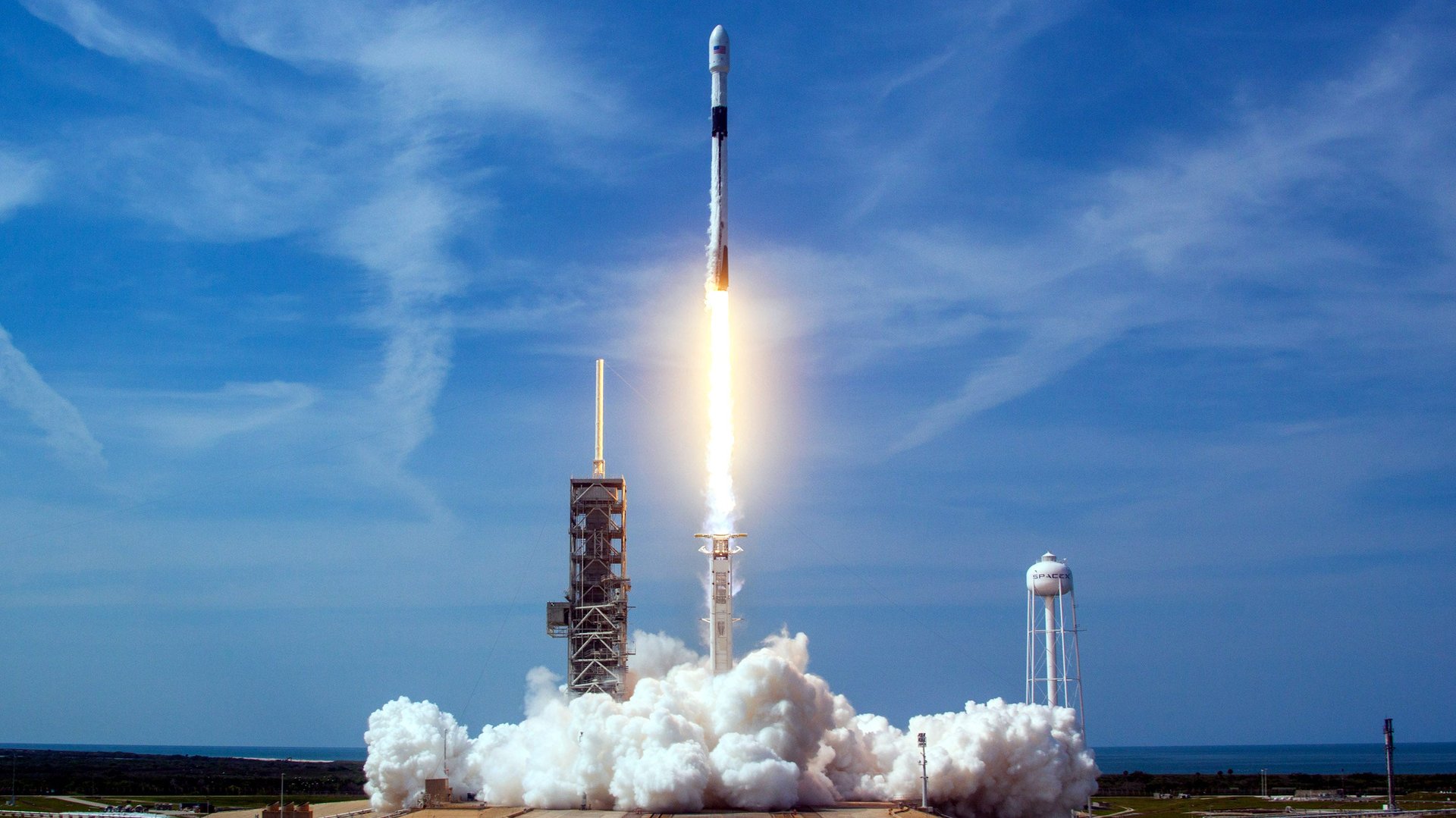SpaceX is about to take the lead in the satellite internet race
Elon Musk’s space company is planning to launch 60 of its own satellites in a single launch this week, the first of more than 4,000 spacecraft planned for the Starlink network.


Elon Musk’s space company is planning to launch 60 of its own satellites in a single launch this week, the first of more than 4,000 spacecraft planned for the Starlink network.
If successful, the flight will make SpaceX the frontrunner in a tight race to be the first operator of an internet satellite network. Why? SpaceX is the only competitor with its own rockets.
Elon Musk’s firm is one of several, including OneWeb, Telesat and even Amazon, that are investing in plans to launch thousands of satellites that aim to deliver internet connections to customers below. All of these plans will require billions of dollars in investment—for factories and for the satellites and ground stations that will need to be built, plus the cost of launches and operations.
From the point of view of physics, using an array of satellites orbiting the planet to provide internet access makes a lot of sense. Practically speaking, the problem has been that launching satellites is just too expensive compared with laying cable here on Earth.
But now, the business plan is attractive to investors again, thanks to growing demand for connectivity around the world, alongside cheaper and more powerful satellites.
Each of these companies is using an unproven architecture—flying what could eventually be thousands of satellites at altitudes far lower than traditional communications satellites in order to improve connection speeds. And analysts believe the telecom market will not support all of the firms vying to operate high-velocity computers orbiting Earth.
OneWeb became the first mover in the race after telecom entrepreneur Greg Wyler secured the first international regulatory approval for such a constellation. Wyler shopped his idea to Google and then to SpaceX, but ultimately created his own company and won the financial backing of Softbank’s Masayoshi Son. OneWeb launched its first 12 satellites in February 2019.
SpaceX was the first company to launch prototypes, with satellites entering orbit in 2018 and soon establishing a 10-gigabit connection with the company’s satellite division in Seattle. Now, Musk says he expects the first 60 operational satellites to launch on May 15 after a test-fire of the rocket the day before.
The ability to construct and launch satellites at such a fast pace shows the advantage of a vertically integrated space company: Most satellite firms face scheduling delays and big costs trying to get their satellites hitched to other companies’ rockets so they can get off the ground. With its own fleet of reusable rockets, SpaceX can move more quickly to get more satellites in orbit, faster.
Musk said it would take six more launches—360 more satellites—for “minor coverage,” and a dozen more launches—720 satellites—for “moderate coverage.” As always, Musk warned that things were likely to go wrong.
Assuming its satellite-manufacturing facility can keep up, SpaceX, which launched 21 orbital missions last year, could achieve that goal in the next few years alongside its current manifest of commercial and government business. For comparison, Arianespace, the European launch firm that will fly a 21-rocket campaign for OneWeb, launched just 11 orbital missions in 2018.
The tension between the two firms can be seen in their legal battles over US government licenses that give companies permission to launch and communicate with their satellites. With satellites operating near each other, coordination is vital to prevent interference and the potential for collisions and space debris that could create huge economic damage.
After SpaceX requested permission to operate its satellites following this launch, OneWeb’s lawyers objected in a filing to their rival’s “coercive approach,” arguing that “SpaceX actively wields the potential dangers of its uncontrolled spacecraft as a cudgel to attempt to force the Commission to grant [their request.]”
SpaceX responded that OneWeb’s “objections are frivolous and seem more like a last ditch effort to delay a competitor from initiating the process that will bring true broadband services to millions of Americans in underserved and unserved areas.”
The FCC apparently agreed with SpaceX, granting the authority for the launch. Under Republican chair Ajit Pai, the commission has approved 13,000 new satellites in the last year, more than six times the existing population of active satellites orbiting earth. Many in the satellite business, and its industry regulators, worry that more needs to be done to ensure that the operations are conducted safely.
Jessica Rosenworcel, an FCC commissioner appointed by former US president Barack Obama, said last week that despite her support for new space activity, more needed to be done to ensure safety, including a comprehensive review of how the agency reduces the risk of satellite collisions.
“We need to move expeditiously to develop a realistic debris plan that can be implemented stat,” she said. “The new space age is not waiting—and we have work to do.”